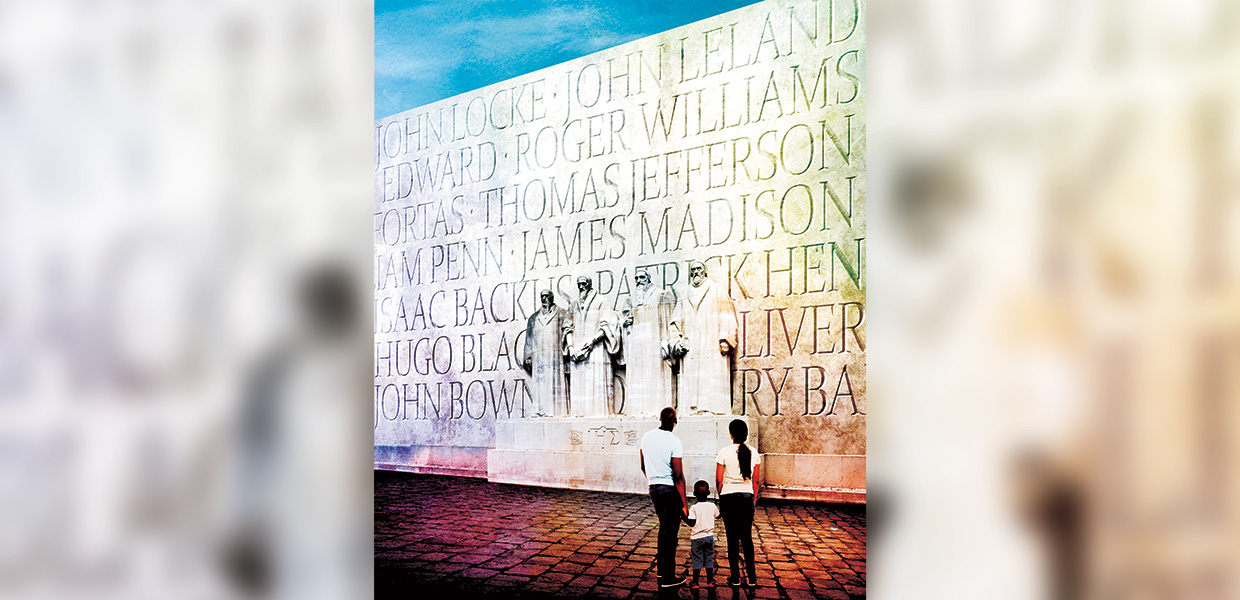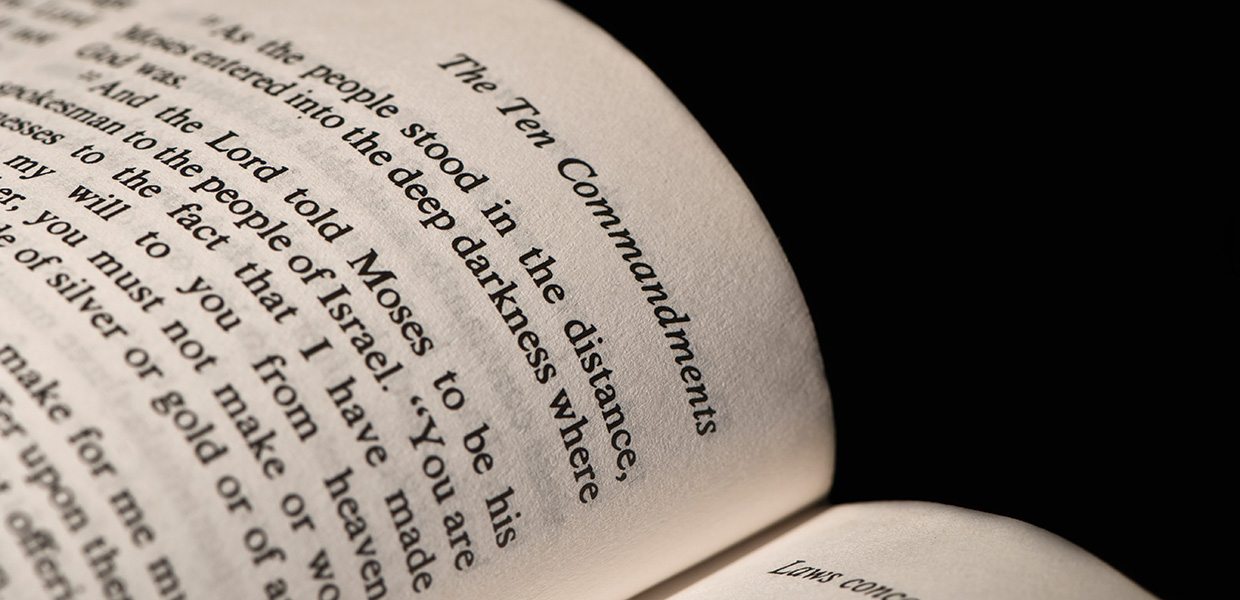



Alabama voters approved a statewide constitutional amendment to allow the posting of the Ten Commandments on government and other public property on November 6, 2018. The specific issue involved a church-and-state question that has the potential to impact the separation that has long kept religious liberty in balance. The amendment passed with 71 percent of the voters in favor, more than any other ballot amendment received.
While the Seventh-day Adventist Church never seeks to tell members how to vote, the Department of Public Affairs and Religious Liberty has been established to provide valuable insights when the issue of separation of church and state are at stake. More telling than anything else may be the sheer number of voters who were in favor of this amendment. It is ironic that while 71 percent of voters cast a ballot in favor of the Ten Commandments, these same voters are constantly telling me (and maybe you, too) that I don’t have to keep the Fourth Commandment (The Sabbath Commandment) because Paul says we’re under grace and not the law. So why push so hard to pass a Ten Commandment amendment?
For more than three decades, a cultural war has intensified between American Christians and Secularists. As the culture of society changes, many Christians have felt that their faith is threatened by a secular worldview that often clashes with religious tenets. As the battle between religious rights and other civil rights has been waged, the courtroom being the battlefront, people of faith feel an ever-increasing loss of ground and influence in the cultural war. Alabama’s Statewide Amendment 1 was a response to that sense of loss of many Christian traditions so deeply a part of American heritage and life in the past. The display of the Ten Commandments on public property is seen as a bulwark against the threatening tide of secularism.
Supporters of religious liberty have always maintained that the beauty of the constitution is its protection against government sponsorship and support of religion, while the freedom to practice one’s faith is promoted and protected. Maintaining the constitution, as it currently is written and buttressed by the First Amendment, provides the limits in which government becomes involved in the realm of faith. Nevertheless, there is an increasing desire to breech that metaphorical “wall” that puts a safety check on government’s relationship to the church.
Back when the Constitution was fresh from the quill of the founders, some feared that this notion of separation of church and state would be a bad influence upon the morals of Americans. By 1819 the Father of the Constitution, James Madison, in a letter to Robert Walsh, said this:
“It was the universal opinion of the century preceding the last that civil government could not stand without the prop of a religious establishment, and that the Christian religion itself would perish if not supported by a legal provision for its clergy. The experience of Virginia conspicuously corroborates the disproof of both opinions. The number, the industry, and the morality of the Priesthood, and the devotion of the people, have manifestly increased by the total separation of church from the state.”
Does Christianity need the help of the government to prosper? Not according to the early experience of the nation. Then why seek to have the arm of the state indoctrinate Judeo-Christian beliefs in our public schools as a means to educate our youth in the ways of right and wrong? Religion is a family matter, not a government one. In order to insure equality among a very diverse citizenry, the state needs to remain neutral toward religion when it comes to its facilitation.
History’s record has shown that when the state is utilized by religion to promote religious dogma, religious freedom suffers. In fact, the use of the state to support the church reveals a weakness — not in the state, but in the faith. Ellen White sums it up quite eloquently in this passage from Thoughts from the Mount of Blessings, p. 126:
“From the Jews in Christ’s time to the Christian church throughout the ages, whenever the church loses the grace of Christ, whenever the church finds herself destitute of the power of love, she has reached out for the strong arm of the state to enforce her dogmas and execute her decrees. Here is the secret of all religious laws that have ever been enacted.”
The Department of Public Affairs and Religious Liberty seeks to promote the preservation of individual rights of conscience. It also has the responsibility in upholding the protections granted to us through the U.S. Constitution in the gift of separation of church and state. The Public Affairs and Religious Liberty Department seeks to engage both our members and the public on important matters involving the First Amendment.
To change a constitution is always a serious measure, especially when that change is being made in a manner that would affect religious liberty. Supporters of the amendment in Alabama encouraged people of faith to ignore the voices that strove to protect religious liberty and/or the separation of church and state. Rather, they called upon all people of faith (or at least Christians) to insure that religious traditions are given legal standing in the display of the Ten Commandments in public areas.
It represents a very specific Adventist viewpoint to the issue of religious liberty and prophecy. Current events happening in our world today act as a thermometer in taking the temperature of society and the attitudes of temporal things that have a spiritual effect. Whether you live in Alabama or not, legislating the Ten Commandments certainly seems like the first step down a road that is foretold to lead to persecution for those who actually follow the Ten Commandments.
Interestingly, Dean Young, who led the grassroots movement to pass the amendment called those who opposed the bill the “bad guys.” He refers to those that oppose such an amendment as enemies of God-fearing people who want to teach children about right and wrong. Young also refused to engage Adventists in discussing the issue of the fourth commandment and the Sabbath.
Ellen White in the book, The Great Controversy, Chapter 36, “The Impending Conflict,” p. 592, says this:
“Those who honor the Bible Sabbath will be denounced as enemies of law and order, as breaking down the moral restraints of society, causing anarchy and corruption, and calling down the judgments of God upon the earth. Their conscientious scruples will be pronounced obstinacy, stubbornness, and contempt of authority. They will be accused of disaffection toward the government. Ministers who deny the obligation of the divine law will present from the pulpit the duty of the yielding obedience to the civil authorities as ordained of God. In legislative halls and courts of justice, commandment keepers will be misrepresented and condemned. A false coloring will be given to their words; the worst construction will be put upon their motives.”
The religious liberty department stands firmly by and in full support of God’s divine directives, the Ten Commandments. We actively applaud those who keep all the commandments. Yet, we do not believe it is the government’s job to do what we as Christians are called to do. There is a proper way to hang the Ten Commandments in the public sphere. That way is God’s placing into willing hearts His law. The true display of the Ten Commandments is found in the lives of God’s people. Every other display of the Ten Commandments is merely superficial decoration, and the vain attempt to instill righteousness that cannot be done in human strength.
is the director of public affairs and religious liberty at the Southern Union in Norcross, Georgia.
Southern Union | January 2019



Comments are closed.